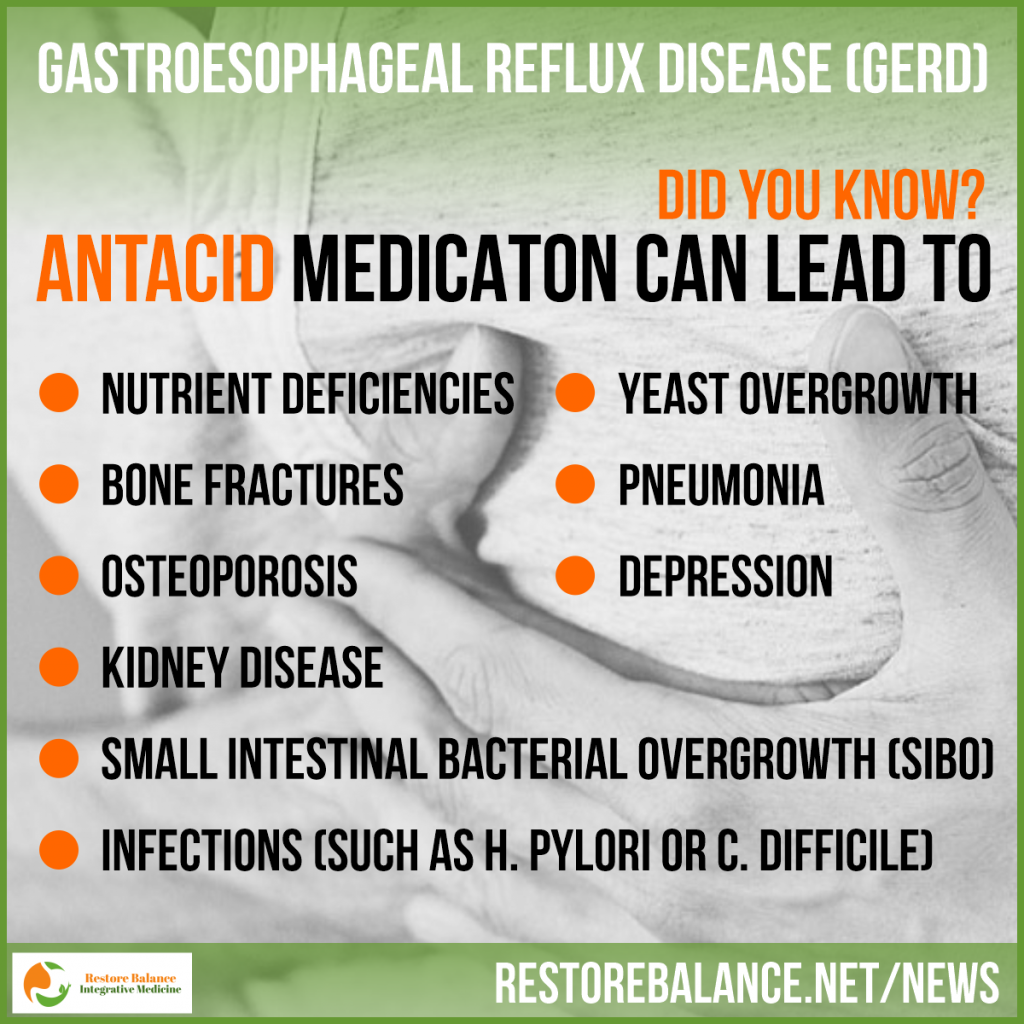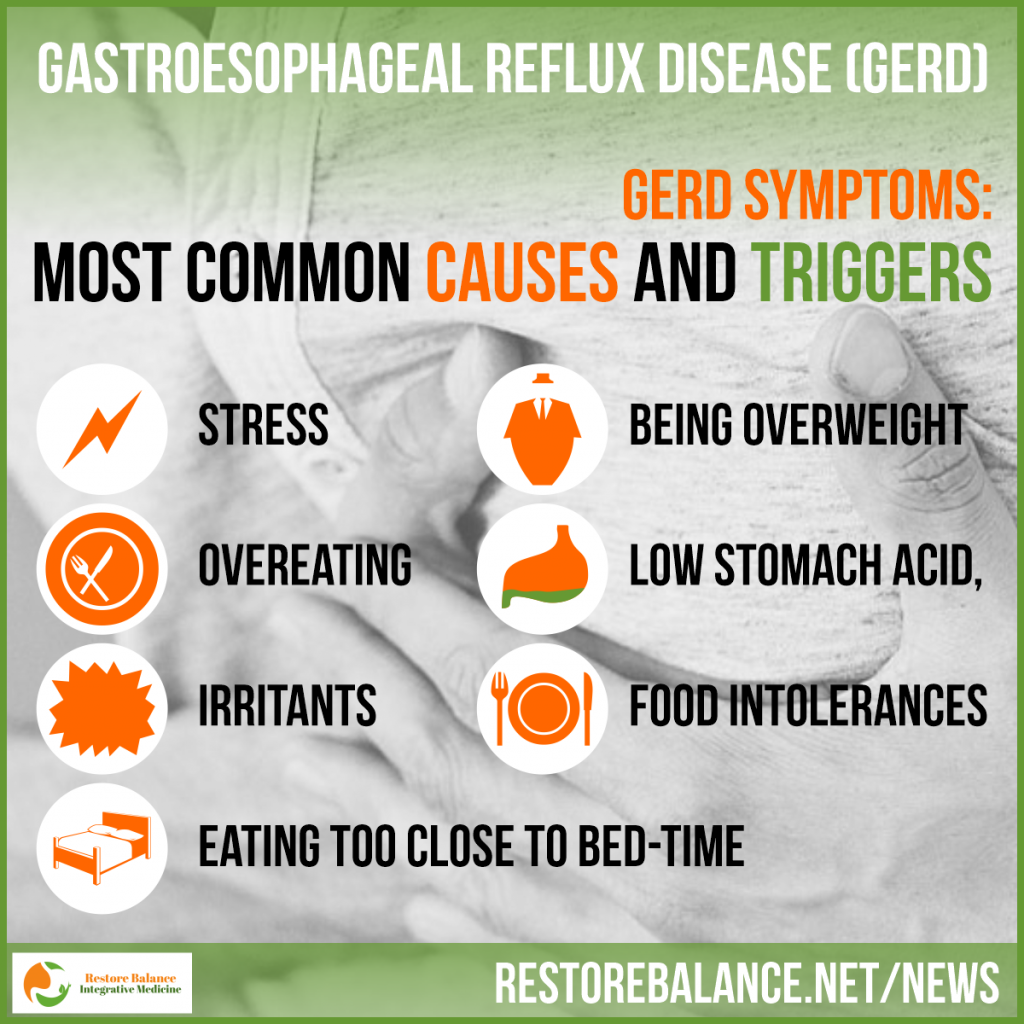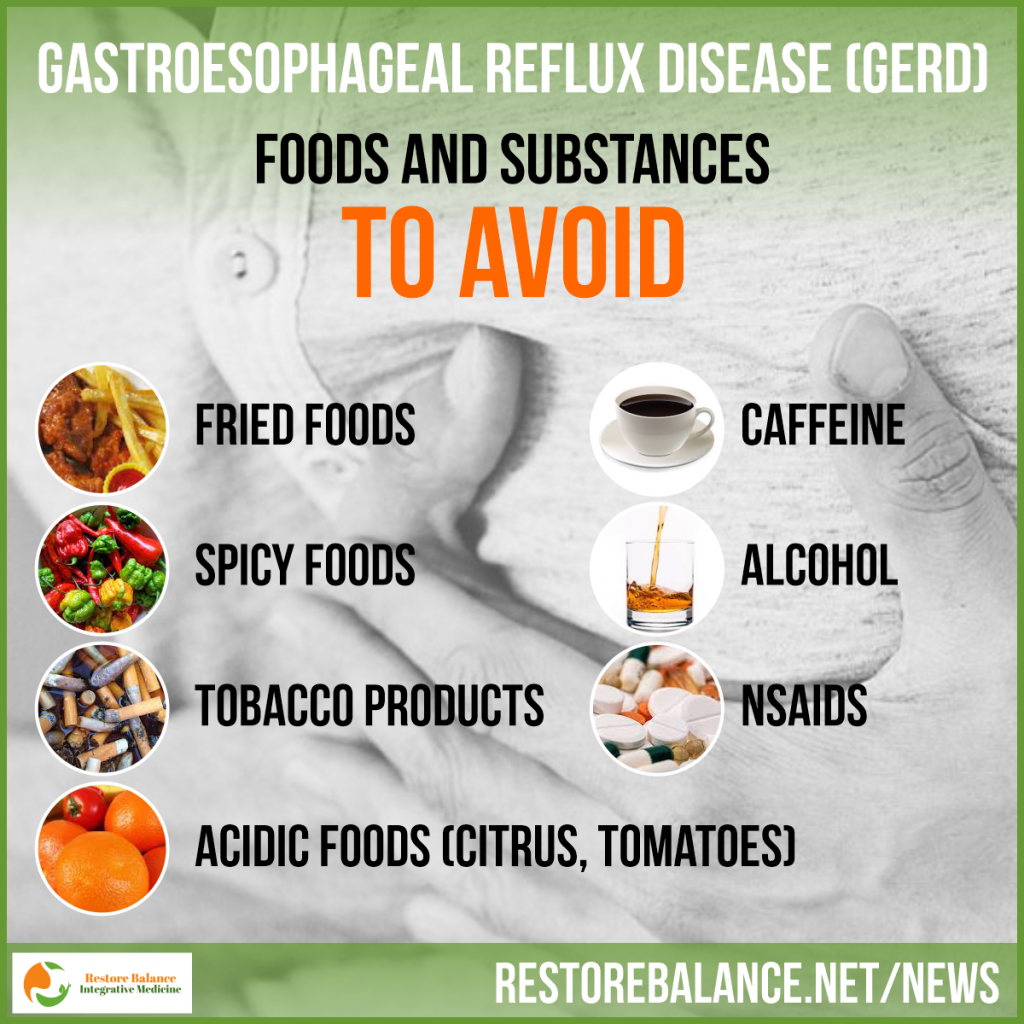Gastroesophageal reflux disease (GERD)
Gastroesophageal reflux disease (GERD) is a condition characterized by heartburn, acid reflux, regurgitation, and painful or burning sensations in the chest and throat. Hoarseness and the feeling of a lump in the throat are also common. GERD develops when the lower esophageal sphincter (LES) does not close properly. Then the contents of the stomach flow backward into the esophagus. Over time, this backflow damages the sensitive lining of the esophagus. People diagnosed with GERD typically experience moderate to severe symptoms two or more times per week.
GERD affects about 30 million people in the U.S. every year. The PPI’s, the antacid medications used to treat it are among the top three prescriptions in the U.S. Unfortunately, because these medications suppress the acid production,they place people at increased risk for:
- Nutrient deficiencies
- Bone fractures
- Osteoporosis
- Kidney disease
- Small intestinal bacterial overgrowth (SIBO
- Yeast overgrowth
- Infections such as H. pylori or C. difficile
- Pneumonia
- Depression


The Functional, Root Cause Approach
Thankfully, functional medicine offers an approach that treats GERD without the side effects of traditional acid-blocking medications. The first step in this approach is to identify the root causes. In other words, it pinpoints why the LES is not closing. So let’s take a look at some of the most common causes and triggers of GERD symptoms.
Stress
Stress affects the nerves that go to your stomach (vagus nerve) and impair several steps of the digestion. When this happens, the stomach’s contents often get pushed back into the esophagus, triggering GERD symptoms. Try using breathwork, guided meditation, EFT, acupuncture, or biofeedback to calm your nervous system and reduce stress levels. Send your body the signal that it is time to rest and digest at mealtime by:
- Enjoying meals in a calm environment
- Taking several deep breaths before each meal
- Eating at a slow, relaxed pace
Overeating
Eating large portions of food too quickly places pressure on the stomach and slows the process of digestion. Strategies to prevent overeating include:
- Eating only at mealtimes – no grazing or snacking
- Identifying and serving yourself appropriate portions
- Skipping second servings
- Eating four smaller meals rather than three large meals
Being overweight
Extra weight around the belly pushes up on the stomach, creating pressure. When the stomach is not in its natural position, the LES may not be able to close. Releasing excess weight can play a vital role in reversing GERD symptoms.
Eating too close to bed-time
Laying down when your stomach is full can trigger symptoms. Make sure to eat your last meal of the day at least three hours before bed, allowing the stomach plenty of time to process your food. It may also help to elevate your head 4-6 inches while sleeping.
Low Stomach Acid, Food Intolerances, and Irritants
Contrary to popular belief, low stomach acid is an underlying cause of acid reflux and GERD. Low stomach acid leads to poor digestion. It also contributes to bacterial overgrowth and food intolerances that can create gas and place pressure on the stomach. There are a handful of foods and substances that also weaken the LES and aggravate GERD symptoms. Try avoiding the following foods and substances:

- Fried foods
- Spicy foods
- Acidic foods such as citrus and tomatoes
- Caffeine
- Alcohol
- Tobacco products
- NSAIDs
Natural Ways To Support Healthy Digestion
Functional medicine practitioners may recommend some of the following supplements to improve digestion and relieve GERD symptoms. They will choose the ones that are safest and most appropriate for your particular situation.
- DGL
- Slippery Elm
- Marshmallow root
- Betaine HCL
- Digestive Enzymes
- Zinc carnosine
- Digestive bitters
- Aloe
- Chamomile
In addition, functional medicine practitioners can help you gradually wean off of acid-blocking medications such as PPIs in a way that will prevent or minimize rebound symptoms.
If you are suffering from GERD, now is the perfect time to connect with a functional medicine practitioner. Our physicians can help you pinpoint the root causes of your GERD symptoms and create a plan that will help you reverse them naturally. Call to schedule a consultation today!

